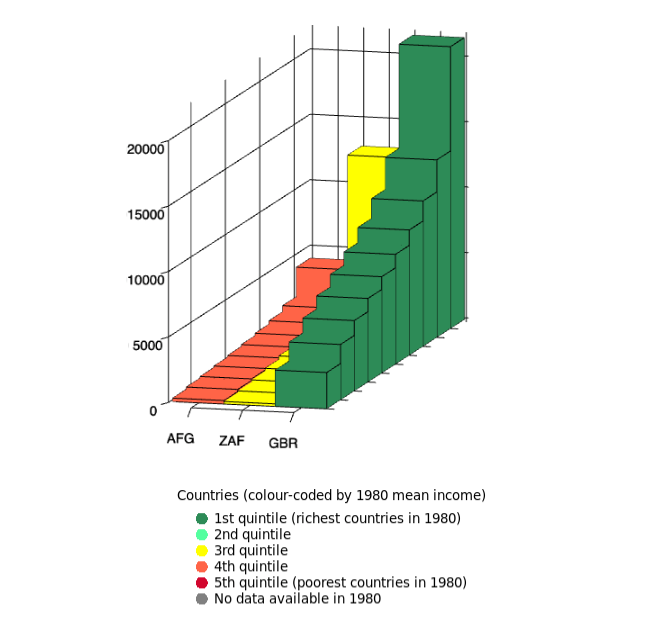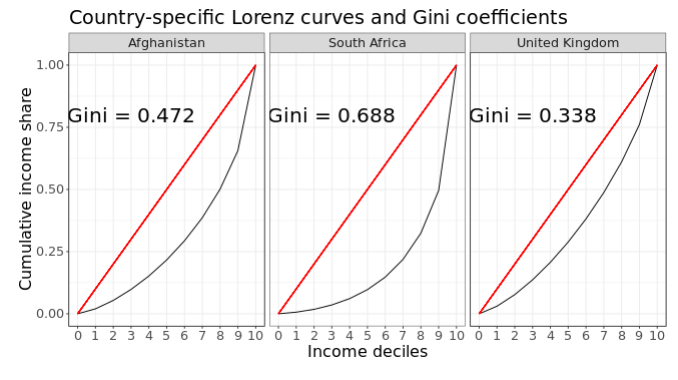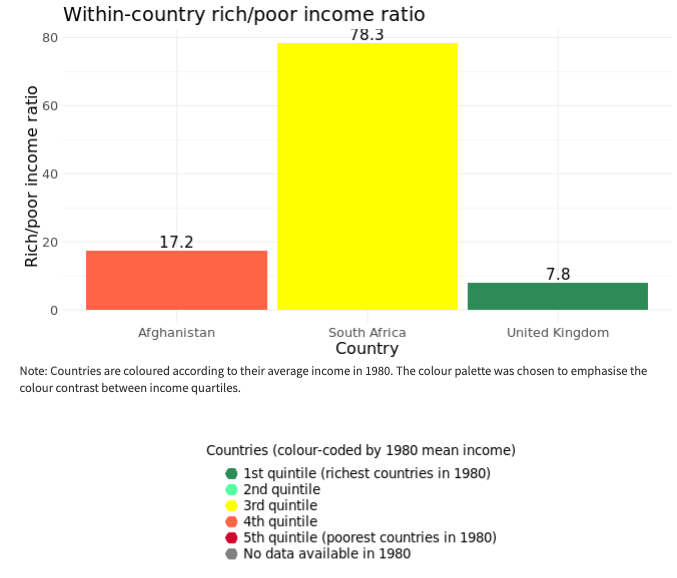CORE

Every year since the start of the CORE project we have tried an experiment in classrooms around the world. On the first day of their first class in economics we ask students: ‘What is the most pressing problem that economists should address?’ The resulting word clouds show the student’s responses.
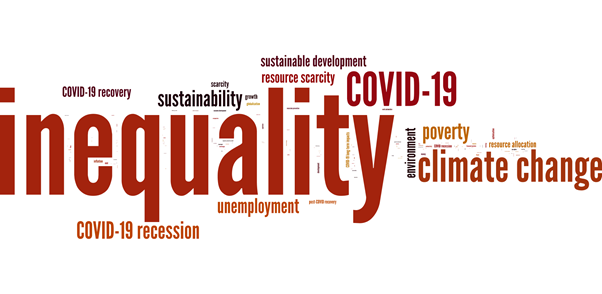
The figure above shows the responses of 8,076 students in 40 universities in 18 countries, collected between 2016 and 2020. Inequality has been consistently noted as the most pressing issue. In addition, students included climate change and sustainable development in their answers and, more recently, COVID-19.
What would an Intro to Economics course be like if you started with the problems that students think should be addressed most urgently – wealth creation and innovation, instability, environmental sustainability, and inequality? Find out by going to www.core-econ.org for free online teaching and learning resources in economics that address these issues. Explore CORE’s Principles e-texts, The Economy and Economy, Society, and Public Policy which are now used on courses in at least 380 universities in 66 countries.
Adopters of CORE say:
“The CORE Project is the best innovation in economic education that I have seen in my career.”
Christian Gollier, former director, Toulouse School of Economics
“This is quite simply the best economics textbook on the market. Unlike most others, The Economy teaches both the tools of the discipline and the way real economies work, making it useful and fun at the same time.”
Dani Rodrik, Professor of International Political Economy, Harvard University
CORE publications
Alongside The Economy (available in English, Spanish, French, Italian and Finnish) and Economy, Society, and Public Policy, CORE ebooks and publications include:
- Doing Economics, a collection of 12 empirical projects linked to themes in The Economy and Economy, Society, and Public Policy, to help students develop a wide array of data-handling skills
- Experiencing Economics, a collection of games and experiments that instructors can play with their students in the classroom or online
- CORE Insights, a self-contained educational resource that provides additional teaching and learning resources linked to relevant conceptual treatments in CORE’s ebooks
- The Economy: A South Asian Perspective, an adaptation of The Economy which uses the style, framing and content of the original ebook and introduces topics and features specific to South Asian and developing economies.
Students can access a range of interactive elements to support their learning, such as:
- interactive diagrams and online quizzes with feedback
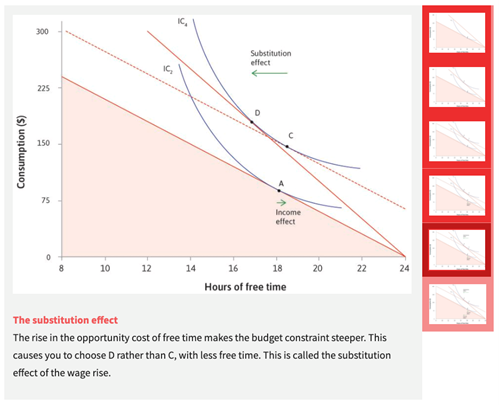
- an interactive visualisation to explore how the income distribution within and between countries has changed over time (1980-2014).
- Measuring economic inequality in today’s world, CORE’s free, online course providing learners with a historical overview of the evolution of economic inequality over the past millennium, and introducing them to quantitative tools to measure it with real-world data. The course also explores issues of inequality in health and education, and its measurement.
- an interactive simulation showing how COVID-19 spreads across a population over time, and its associated effects on the economy and income inequality. .
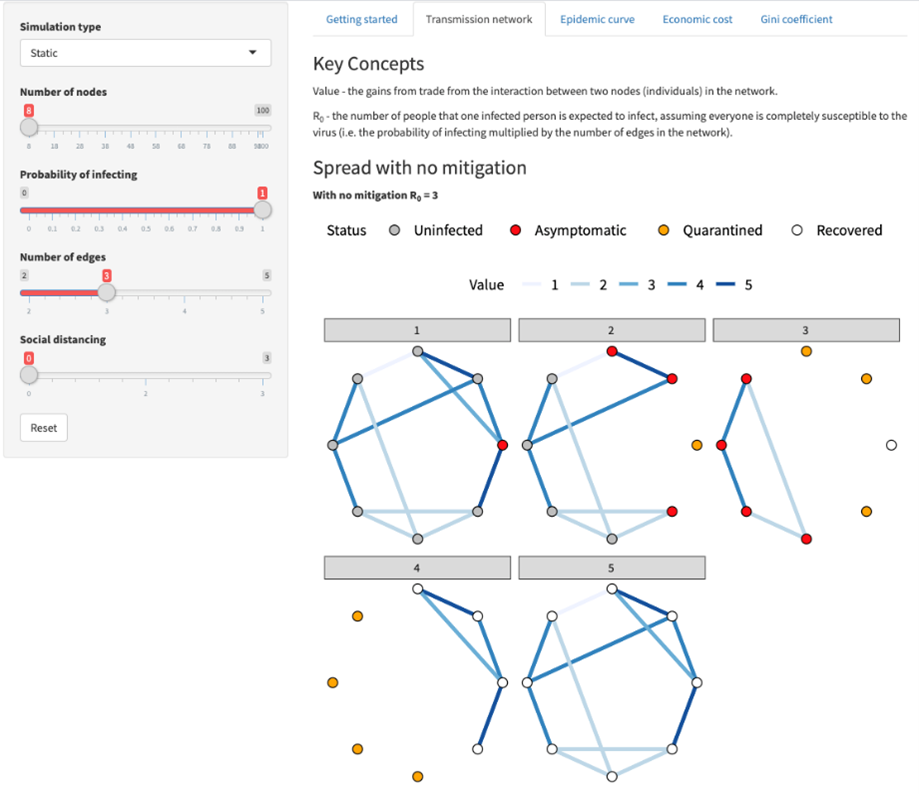
Instructors have access to a range of resources to help them build a course:
- Lecture slides,
- Teaching guides for classroom and asynchronous teaching,
- Answers to exercises,
- A Question Test Bank with 1,000 questions with immediate feedback,
- Video tutorials covering key models in The Economy and Economy, Society, and Public Policy,
- Economist and Financial Times articles mapped to units of The Economy and Economy, Society, and Public Policy, with discussion questions,
- Economist in Action videos, in which world-renowned economists explain how their research helps to address a specific question that is discussed in the ebook’s unit
- for data figures, instructors can download all the data sets used in the ebooks.
Student outcomes
Preliminary research from University College London (2014 and 2015 cohorts) suggests that students who take an introductory economics course taught from CORE’s The Economy have better performance than their peers taught with a non-CORE textbook, as well as performing better in later courses, both in economics and non-economics courses.

The changing paradigm in economics education
In a series of articles, CORE’s leadership articulated the changing paradigm it is spearheading in the content of economics education and new pedagogy:
- What students learn in economics 101: Time for a change – a paper by Sam Bowles and Wendy Carlin, published in the March issue of the Journal of Economic Literature, which uses machine learning text analysis to uncover the evolution of introductory economics since Samuelson revolutionized intro in 1948, and sets out how CORE is attempting something similar to what Samuelson did in 1948 to address the new challenges that face us today.
- Another ‘Samuelson, 1948’ moment’? Evidence from machine learning – by using topic modelling, Wendy and Sam find that concepts empowering economists to address today’s major challenges – climate change, inequality and the future of work and of property rights in the knowledge-based economy – are missing from leading textbooks.
- The coming battle for the COVID-19 narrative – Wendy and Sam argue that COVID-19, along with climate change, could be the equivalent of the Great Depression and WWII in forcing a sea change in economic policy going well beyond a greater role for government in the economy.
- COVID-19 is resetting the way we talk about the economy – an op-ed in the Financial Timesin which Wendy and Sam reflect on how the COVID-19 pandemic and the climate change crisis are re-shaping how people will talk about the economy, by giving greater prominence to ethical considerations.
- In the Spring 2021 issue of IMF’s Finance & Development, Wendy and Sam reflect on the historical evolution and current state of today’s economic benchmark, crystallised in its assumptions of amoral and self-interested individuals, interacting in competitive markets governed by complete contracts.
Keep up to date with CORE developments by subscribing to the CORE newsletter [mailto:contact@core-econ.org?subject=CORE newsletter subscription], or visit the links below:
Find out more about CORE in our introductory videos:
See CORE in action
See CORE Economists in Action
